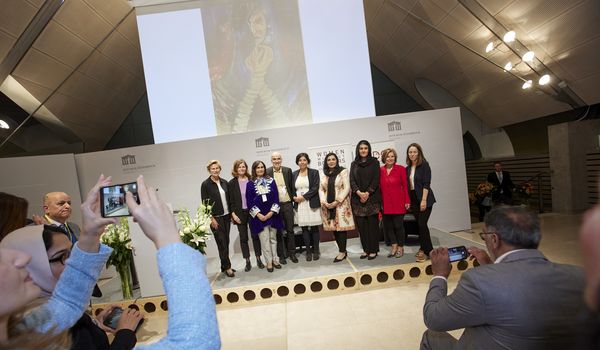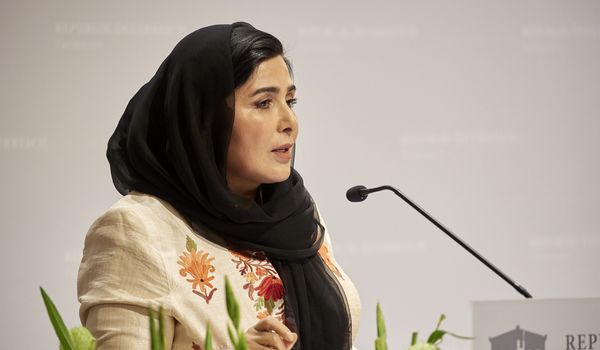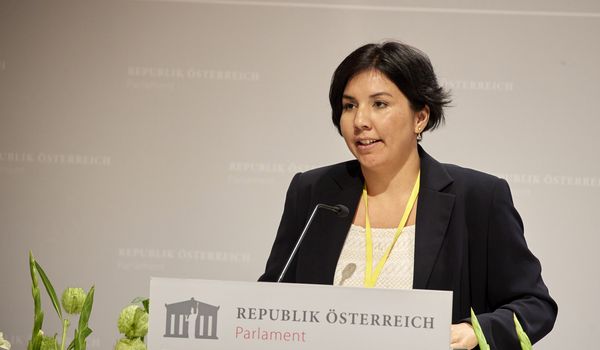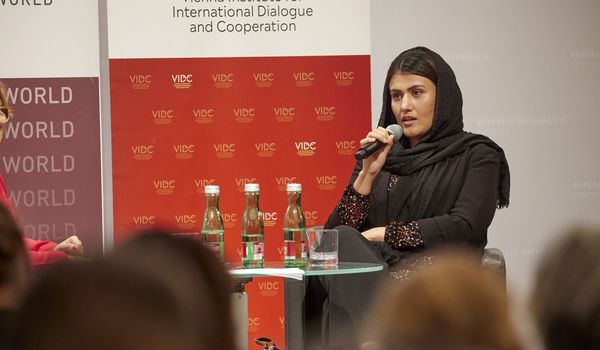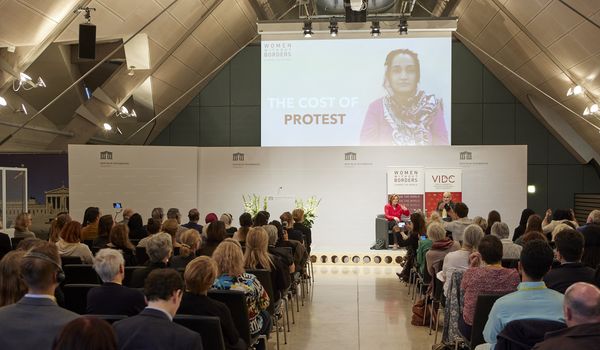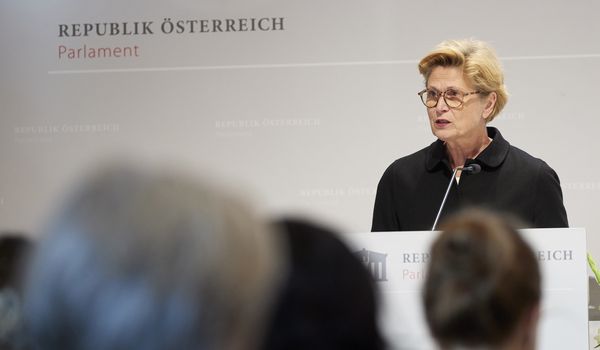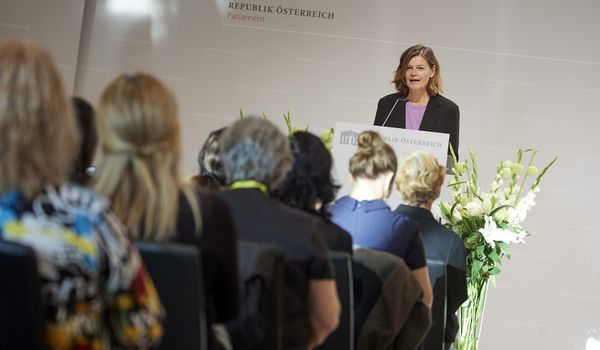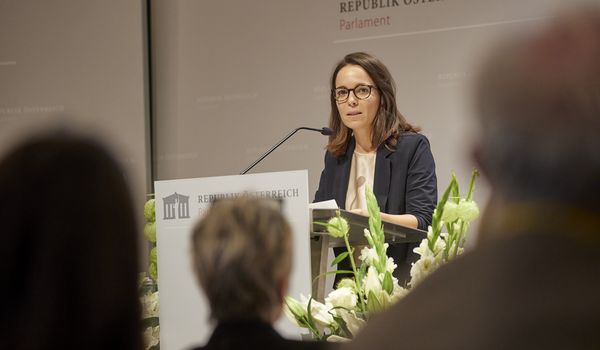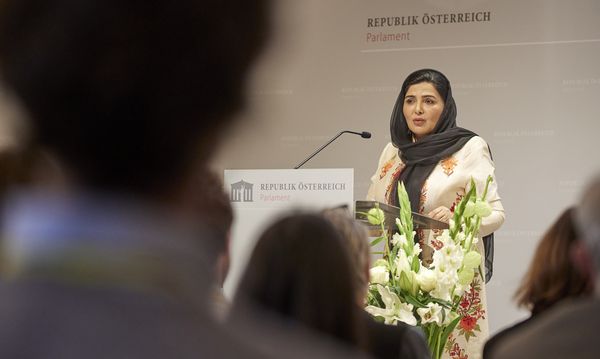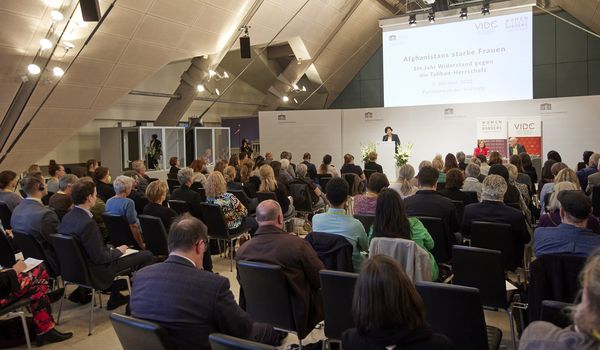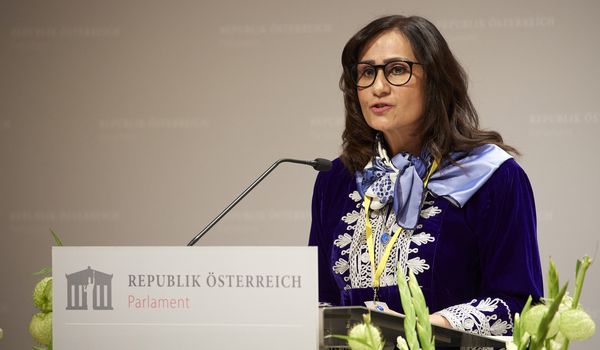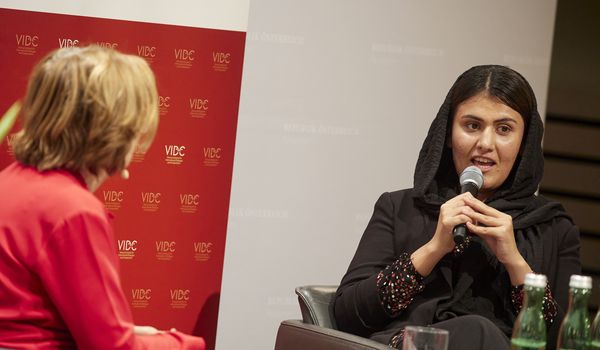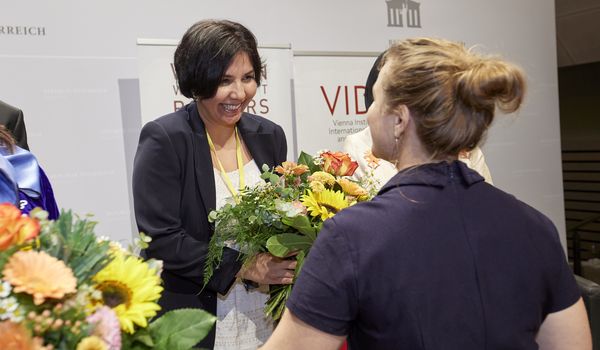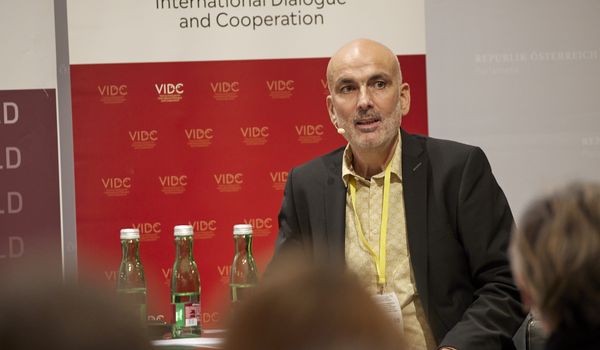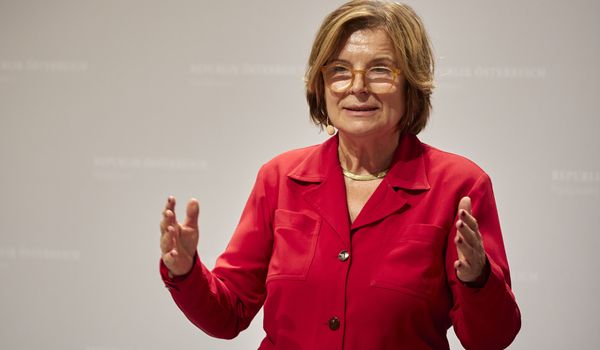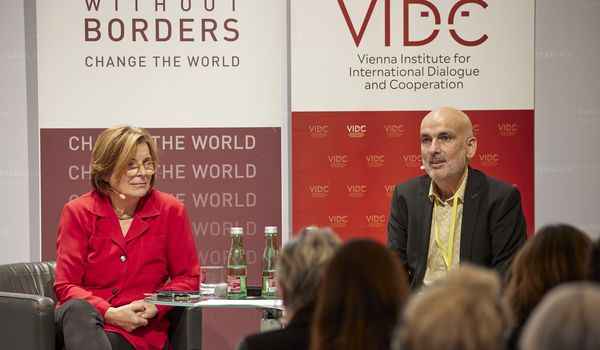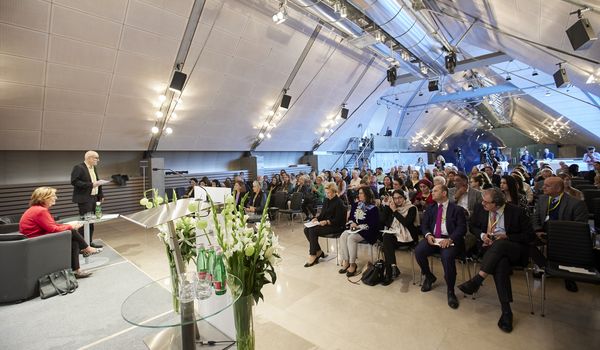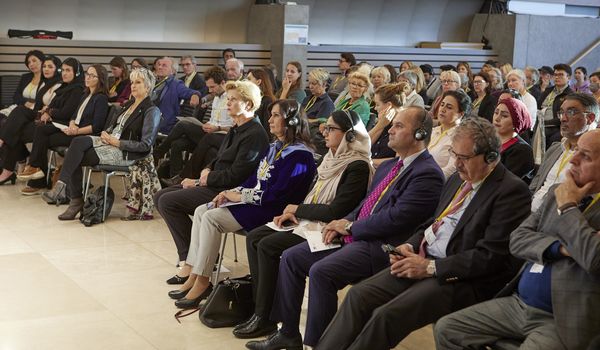“As a nation, we lost all our achievements, but as women, we lost our most basic and fundamental rights,” stated Husna Jalal during an event at the Austrian Parliament in Vienna. Jalal’s comments refer to the fight Afghan women have been engaged in for over a year against oppressive de facto Taliban rule since they gained power on the 15th of August 2021. Since the takeover, Afghan women and girls have faced discrimination, segregation, and gender-based violence and have almost vanished from public life due to the strict interpretation of Sharia law by de facto authorities.
The Second President of the National Council, Doris Bures, hosted an evening of support for the struggle of women for equality and freedom in Afghanistan on 3 October 2022 with VIDC and Women without Borders (WwB). The vice president of the Austrian parliamentary body, Susanne Janistyn-Novák; the ambassador for the former government of Afghanistan, Manizha Bakhtari, who continues to serve as the country’s ambassador in Vienna; the executive director of WwB, Laura Kropiunigg; and the director of VIDC, Sybille Straubinger, all spoke to 150 attendees about the situation of Afghan women. Additionally, they discussed what external players such as civil society organizations like VIDC and WwB, and decision makers such as the Austrian Parliament could do to help the women of Afghanistan.
During her opening remarks, Janistyn-Novák promised that the European Union (EU) would not recognize the Taliban until and unless women were included in an inclusive government. Despite the fact that global crises, such as the economy, energy, pandemic, and the war in Ukraine, have drawn the EU’s attention away from women’s oppression in Afghanistan, Janistyn-Novák stated that no closed doors can hide the Afghan women: “We are not going to forget the women in Afghanistan. We see women and girls in Afghanistan. We will not allow them to become invisible,” said Janistyn-Novák.
Manizha Bakhtari listed the number of harsh policies imposed by the Taliban during only one year of their draconian rule. She blamed the Taliban for failing to form an inclusive and accountable government that respected the rights of all Afghans, particularly women and girls. While Afghan women in exile have protested across the world against the Taliban, female protesters in Afghanistan have been attacked, beaten, whipped, and arrested.
From Taliban 1.0 to Taliban 2.0
To highlight the oppression that women face in Afghanistan under Taliban rule, Suraya Pakzad, the director of Voice of Women Organization (VWO), Husna Jalal, the founder of a digital online platform known as the “Young Afghan Women Movement,” and Masomah Regl, an activist in the Afghan diaspora community and the founder of an Afghan diaspora organization in the Austrian city of Graz (FIVESTONES), delivered keynote speeches. After the Taliban reclaimed control in August 2021, Pakzad and Jalal were forced into exile, going to Germany and the Netherlands, respectively.
Pakzad ran an underground school during the first Taliban rule between 1996 and 2001. She then founded her organization in 1998 to offer vital legal aid services, education, access to justice, and protection for women who were the victims of domestic violence. Pakzad noted that for over two decades, hundreds of Afghan women from different provinces received these services, but all those hard-fought gains were wiped out, and the rights of women and girls have been dismantled.
In her address in the Austrian parliament, Pakzad accused the Taliban of raiding her organization’s offices and confiscating all office supplies, harassing, detaining, and torturing her coworkers and family members after she was evacuated to Germany in August 2021. As a veteran advocate for women’s rights, Pakzad has acquired the necessary skills to deal with both oppressive Taliban regimes: their tenure in the 1990s (Taliban 1.0) and their return to power in August 2021 (Taliban 2.0). Her organization had to alter its methods of operation but continues to help women in need.
The New Generation
Jalal was just six years old when the U.S. ousted the Taliban from power in 2001 for harboring Osama bin Laden, who masterminded the 9/11 attacks. She grew up under a new political order during the U.S. invasion. Jalal thanked the international community for educating her and her generation about “peace, democracy, and gender equality.” She explained that she was inspired by the courage shown by the young Afghan women on the streets of Kabul, calling for equal rights and freedom. She reminded the audience at the Austrian parliament that the Taliban was facing a different generation than what they faced in the 1990s when they were in power. She made it clear that her generation would not abandon Afghanistan: “This is the new face of Afghanistan. These women are leading the non-violent resistance.”
According to Jalal, Afghan women in the diaspora are not bystanders. They raise awareness about the oppression and atrocities against women that the Taliban is committing in Afghanistan. Women in Afghanistan resist on the streets, but women in exile resist with their voices and pens. Jalal expressed her frustration with how the international community and global civil society organizations have reacted so far to the plight of Afghan women since August 2021. It has been more than one year since girls beyond sixth grade cannot go to school. The situation for women is getting worse every day, as the world has been watching. Regardless of international community support, she promised that the women’s resistance against the Taliban would continue: “Whether the international community supports the resistance of Afghan women or not, they will continue resisting against the current de facto authorities.”
Diasporic Life
As an Afghan-Austrian, Regl criticized Austria for not doing enough to evacuate Afghans who were in real danger due to the Taliban’s return to power. Applauding strong Afghan women in the diaspora makes less sense if the diaspora cannot help their family and friends who are in real danger because of their ethnicity or their prior affiliation to foreign forces, as well as the former Afghan government.
Regl urged the Austrian government to evacuate Afghanistan’s most vulnerable populations. She has fought for her family to be evacuated from Afghanistan for the past year, but Austria refuses to evacuate vulnerable Afghans directly to Austria. She advised the audience that Austria should act rather than merely speak hollow words and honor powerful Afghan women living abroad. She emphasized the importance of responding to Afghan women’s cries for assistance with deeds rather than words.
Regl, like 45,000 other Afghans living in Austria, complimented Austria for making them feel welcome and happy. However, she questioned how the Afghan diaspora could continue to enjoy their lives if their families and friends were not living in peace. Regl claimed that she and her community live in two worlds: the first is one in which they feel fortunate and content to live, and the second is one in which they feel a duty to those who remain in Afghanistan. Through various events, such as yoga sessions and music programs, her organization, FIVESTONES, encourages women to be resilient and independent. This does not necessarily imply breaking away from culture and family.
Recommendations
The people of Afghanistan are preparing for the brutal winter that is knocking at their doors. Critical food, water, sanitation, and hygiene services are needed. Pakzad said that any humanitarian help for Afghanistan must take gender equality into account and make sure it reaches the women and families who are at risk. According to Pakzad, foreign powers should not neglect to collaborate with Afghan women-led organizations because of their access to women and girls.
The collapse of Afghanistan was influenced by numerous internal and external factors. The Taliban took control of Afghanistan in August 2021, and both the prior administration and the West shared responsibilities. According to Jalal, if the international community wants to address its shortcomings, it should speak with the “right” individuals rather than those who have squandered opportunities during the past twenty years. She urged the international community to impose travel restrictions on Taliban members and asked that the Taliban be put under pressure to reopen schools for girls beyond the sixth grade.
Afghan women in exile need a global network of support to advocate and lobby for the rights of Afghan women in Afghanistan. To ensure that Afghan women continue to get help, the international community should organize financial resources and distribute through Afghan women's organizations.
Finally, Austria, like the EU as a whole, should organize an evacuation program from Afghanistan for threatened women, activists and human rights defenders, so that they can live in safety in Europe.


